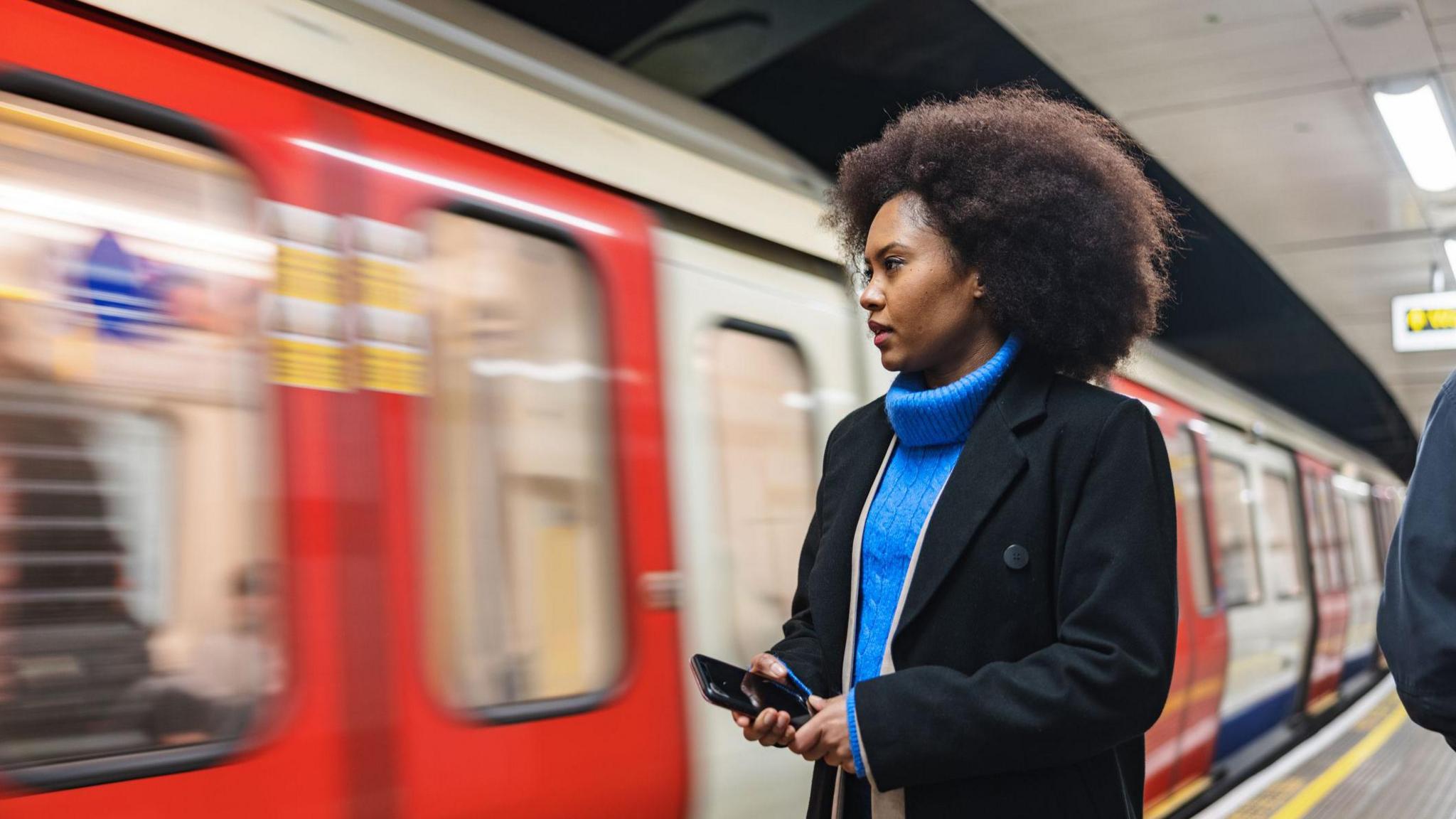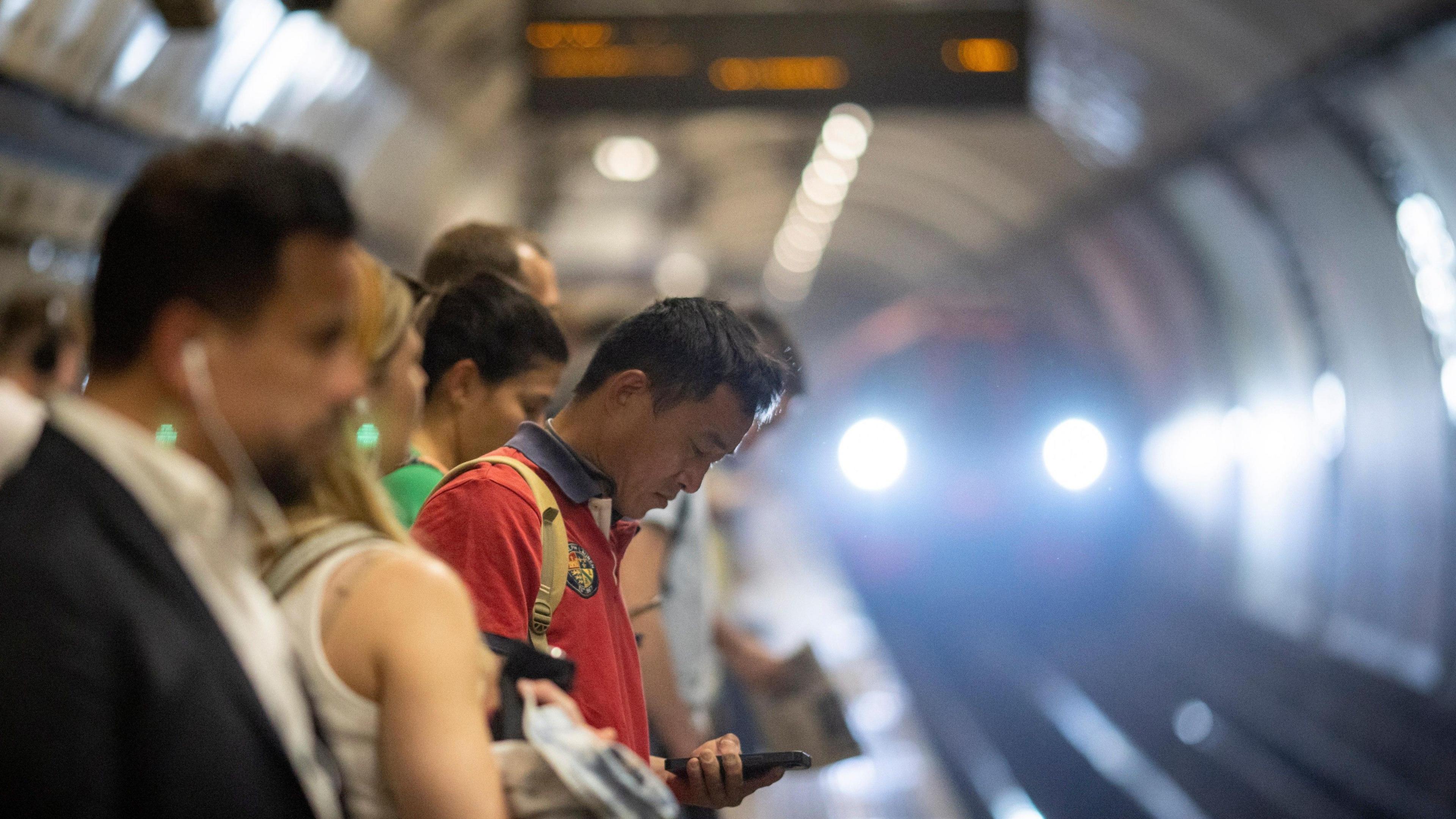Off-peak Fridays trial sees Tube ridership go up 3%

The TfL off-peak Fridays trial was in place from March to May
- Published
A £24m trial scheme offering off-peak Transport for London (TfL) fares all day on Fridays has been found to have had a "negligible" impact on bringing more people into central London, a City Hall Conservative has said.
City Hall introduced the three-month trial in March with the aim of attracting workers into the office and to boost the hospitality and cultural sectors.
Tube ridership data - which is not the full analysis of the scheme's impact as it also included Overground, DLR Elizabeth line and London rail services - found the scheme appeared to have resulted in only a 3% increase in use.
TfL said daily ridership data was less useful for assessing the scheme's impact and its analysis would "take into account a number of aspects".
Off-peak Friday fares trial on London transport ends
- Published31 May 2024
Will the five-day office week make a return?
- Published10 November 2023
The rise in Londoners working from home has meant Fridays in the city centre are quieter than they were before the pandemic.
The trial ran on Fridays for a period of 13 weeks, starting on 8 March and concluding on 31 May.
About 40.6 million London Underground journeys were made on Fridays during the trial period excluding Good Friday, when all fares were off-peak anyway due to it being a bank holiday.
Ridership during the same set of Fridays in 2023 was only slightly lower, at about 39.4 million journeys, again excluding Good Friday.
The figures, available on TfL's website, only cover Tube journeys and do not include ridership on the Elizabeth line, Overground, DLR and London’s national rail services, all of which were also part of the trial.
TfL said in its finance report earlier this month that total journeys across all of its services were up by just over 6% compared to last year, meaning that the 3% rise on the Tube on Fridays might have largely happened without the trial.
'Negligible impact'
National rail strikes also appear to have reduced ridership levels on two of the relevant Fridays in 2023.
Keith Prince, City Hall Conservatives’ transport spokesman, said: "Off-peak Fridays will end up costing the taxpayer an estimated £24m, despite having a negligible impact on passenger numbers."
He added this money would have been better spent in other areas, such as improving the Central line and expanding the zero-emission bus fleet.
Caroline Russell, a Green Party assembly member, called on Labour's London Mayor Sadiq Khan to reinstate free travel for older people before 09:00, which was in place during the off-peak Fridays trial.

Tube ridership rose by about 3% on Fridays during the trial
A TfL spokesperson said it was continuing to analyse the results of the trial.
“This analysis will take into account a number of aspects including assessing changes to both morning peak ridership and overall daily ridership, as well as the impact to businesses across London,” they said.
TfL pointed out that the publicly-available figures only show total ridership each day, making it less useful for assessing any specific journey increases during the rush-hour periods covered by the trial.
The authority also noted that ridership was always changeable around bank holidays, the Easter period and school holidays in April and May.
The £24m of funding to support the trial was “used to offset the difference in revenue shortfall” created by the scheme, the mayor’s office said at the time it was signed off.
City Hall sources have previously rejected suggestions that the mayor “squirrelled away” money in order to spend it just prior to his re-election bid on 2 May, calling the accusation “complete nonsense”.
Speaking last week, the mayor said he hoped the comprehensive analysis of the trial would be published "in the next couple of months".
The Liberal Democrats have also been asked to comment.
Listen to the best of BBC Radio London on Sounds and follow BBC London on Facebook, external, X, external and Instagram, external. Send your story ideas to hello.bbclondon@bbc.co.uk, external